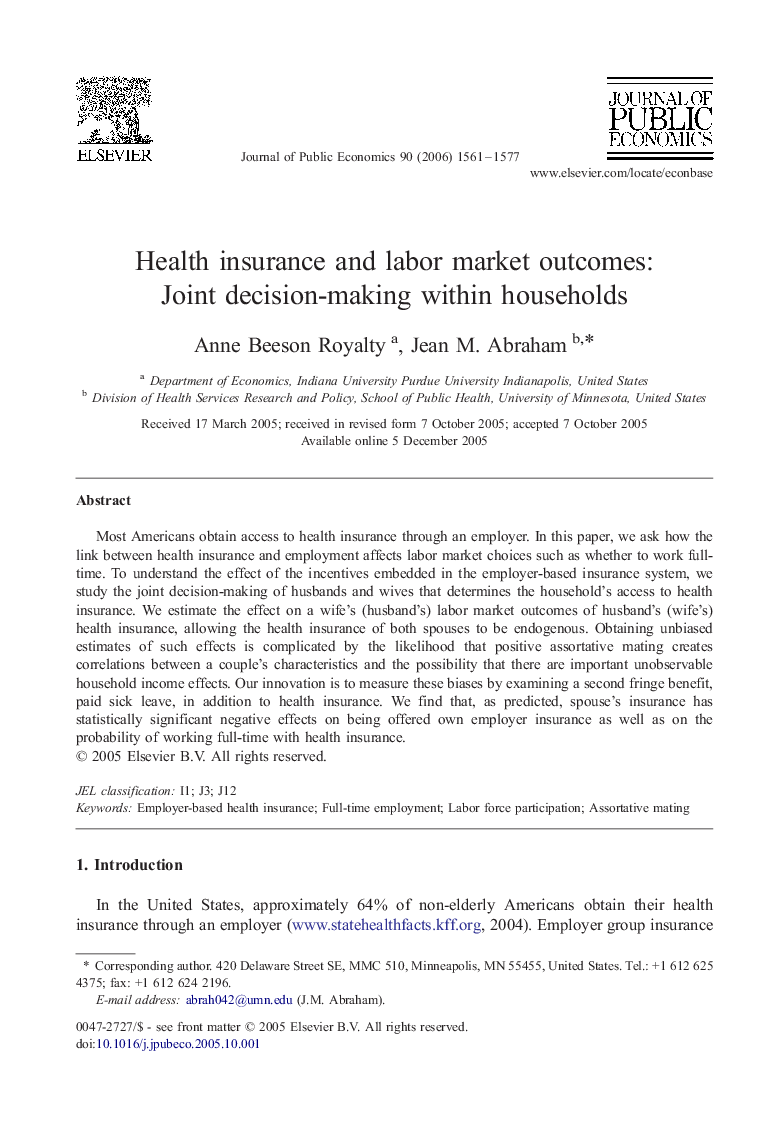| Article ID | Journal | Published Year | Pages | File Type |
|---|---|---|---|---|
| 970389 | Journal of Public Economics | 2006 | 17 Pages |
Most Americans obtain access to health insurance through an employer. In this paper, we ask how the link between health insurance and employment affects labor market choices such as whether to work full-time. To understand the effect of the incentives embedded in the employer-based insurance system, we study the joint decision-making of husbands and wives that determines the household's access to health insurance. We estimate the effect on a wife's (husband's) labor market outcomes of husband's (wife's) health insurance, allowing the health insurance of both spouses to be endogenous. Obtaining unbiased estimates of such effects is complicated by the likelihood that positive assortative mating creates correlations between a couple's characteristics and the possibility that there are important unobservable household income effects. Our innovation is to measure these biases by examining a second fringe benefit, paid sick leave, in addition to health insurance. We find that, as predicted, spouse's insurance has statistically significant negative effects on being offered own employer insurance as well as on the probability of working full-time with health insurance.
